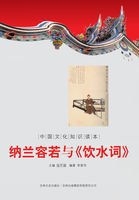Their science amounted only to an analysis of human passion. All wanted a government entirely free from tyranny; all expected impossibilities. Some were in favor of a Venetian aristocracy, and others of a pure democracy; yet none would yield to compromise, without which no permanent political institution can ever be framed. How could the inexperienced citizens of Florence comprehend the complicated relations of governments? To make a constitution that the world respects requires the highest maturity of human wisdom. It is the supremest labor of great men. It took the ablest man ever born among the Jews to give to them a national polity. The Roman constitution was the fruit of five hundred years' experience. Our constitution was made by the wisest, most dignified, most enlightened body of statesmen that this country has yet seen, and even they could not have made it without great mutual concessions. No ONE man could have made a constitution, however great his talents and experience,--not even a Jefferson or a Hamilton,--which the nation would have accepted. It would have been as full of defects as the legislation of Solon or Lycurgus or the Abbe Sieyes. But one man gave a constitution to the Florentines, which they not only accepted, but which has been generally admired for its wisdom; and that man was our Dominican monk. The hand he had in shaping that constitution not only proved him to have been a man of great wisdom, but entitled him to the gratitude of his countrymen as a benefactor. He saw the vanity of political science as it then existed, the incapacity of popular leaders, and the sadness of a people drifting into anarchy and confusion; and, strong in his own will and his sense of right, he rose superior to himself, and directed the stormy elements of passion and fear. And this he did by his sermons from the pulpit,--for he did not descend, in person, into the stormy arena of contending passions and interests. He did not himself attend the deliberations in the town hall; he was too wise and dignified a man for that. But he preached those principles and measures which he wished to see adopted; and so great was the reverence for him that the people listened to his instructions, and afterward deliberated and acted among themselves. He did not write out a code, but he told the people what they should put into it. He was the animating genius of the city; his voice was obeyed. He unfolded the theory that the government of one man, in their circumstances, would become tyrannical; and he taught the doctrine, then new, that the people were the only source of power,--that they alone had the right to elect their magistrates. He therefore recommended a general government, which should include all citizens who had intelligence, experience, and position,--not all the people, but such as had been magistrates, or their fathers before them.
Accordingly, a grand council was formed of three thousand citizens, out of a population of ninety thousand who had reached the age of twenty-nine. These three thousand citizens were divided into three equal bodies, each of which should constitute a council for six months and no meeting was legal unless two-thirds of the members were present. This grand council appointed the magistrates. But another council was also recommended and adopted, of only eighty citizens not under forty years of age,--picked men, to be changed every six months, whom the magistrates were bound to consult weekly, and to whom was confided the appointment of some of the higher officers of the State, like ambassadors to neighboring States. All laws proposed by the magistrates, or seigniory, had to be ratified by this higher and selecter council. The higher council was a sort of Senate, the lower council were more like Representatives. But there was no universal suffrage. The clerical legislator knew well enough that only the better and more intelligent part of the people were fit to vote, even in the election of magistrates. He seems to have foreseen the fatal rock on which all popular institutions are in danger of being wrecked,--that no government is safe and respected when the people who make it are ignorant and lawless. So the constitution which Savonarola gave was neither aristocratic nor democratic. It resembled that of Venice more than that of Athens, that of England more than that of the United States. Strictly universal suffrage is a Utopian dream wherever a majority of the people are wicked and degraded. Sooner or later it threatens to plunge any nation, as nations now are, into a whirlpool of dangers, even if Divine Providence may not permit a nation to be stranded and wrecked altogether. In the politics of Savonarola we see great wisdom, and yet great sympathy for freedom. He would give the people all that they were fit for.
He would make all offices elective, but only by the suffrages of the better part of the people.
But the Prior of St. Mark did not confine himself to constitutional questions and issues alone. He would remove all political abuses;he would tax property, and put an end to forced loans and arbitrary imposts; he would bring about a general pacification, and grant a general amnesty for political offences; he would guard against the extortions of the rich, and the usury of the Jews, who lent money at thirty-three per cent, with compound interest; he secured the establishment of a bank for charitable loans; he sought to make the people good citizens, and to advance their temporal as well as spiritual interests. All his reforms, political or social, were advocated, however, from the pulpit; so that he was doubtless a political priest. We, in this country and in these times, have no very great liking to this union of spiritual and temporal authority: we would separate and divide this authority.















